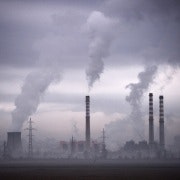Power lessons from Germany's green wedge
Can you imagine the fuss that would have ensued if Tony Abbott had said this during the recent election campaign: “I am in favour of a green agenda but we can’t be religious about it”?
Yes, this line was said – but not here.
The speaker was Antonio Tajani, Europe’s industry commissioner, and he said it as Germans are gearing up to pass judgement on Angela Merkel’s government in a fortnight’s time.
Tajani, one of the most senior members of the European Commission, who has been party to the EU’s trek to the green side in one job or another since the mid-1990s, said: “We can’t sacrifice Europe’s industry for climate goals that are not realistic and not being enforced worldwide.”
Imagine the reaction to Abbott saying that on the campaign trail.
Interviewed by London’s Daily Telegraph, Tajani added: “We face an industrial massacre.”
Nor is the Italian, Brussels-based bureaucrat alone in his views. European president, Herman Van Rompuy, wails that industry in his bailiwick pays twice as much for electricity as American factories and four times as much for gas.
He frets that, overall in the European Union, inflation-adjusted energy prices increased by 27 per cent between 2005 and 2012.
Politicians across the region are also raising concerns that the energy cost crisis could replace the debt crisis as Europe’s top problem.
In Germany, where the Merkel government has shielded the top 2,000 businesses as far as it can from the green subsidies – a move now being challenged by the European Commission as unlawful – some economists are pointing out that the country’s industrial giants are quietly voting with their feet by building up production elsewhere, not least in the US since the “shale gale” lowered input costs for both direct use of gas and power production.
In Merkel’s backyard, the left-of-centre Der Spiegel began a major story on energy prices by writing: “Our aggressive and reckless expansion of wind and solar power has come with a hefty price tag for German consumers."
The local political world, the magazine says, is “wedged between the green energy lobby, masquerading as saviours of the world, and the established utilities with their dire warnings of chaotic supply problems and job losses”.
When the Green Party was part of the German federal government, one of their stars, environment minister Jurgen Tritten, claimed switching the country to renewable energy wasn’t going to cost consumers “more than one scoop of ice cream”.
Now his successor, Merkel’s environment minister Peter Altmaier, laments that consumers are “paying enough to eat everything on the ice cream menu”.
Will Pearson, head of global energy at Eurasia Group in London, says Germany’s dilemma is how to keep energy prices low enough to enable its businesses to remain competitive while also maintaining a balanced budget.
And Merkel’s junior partner in Germany’s present governing coalition, the pro-business Free Democratic Party, is reported to think the present policies are a mistake.
In an edition with a gold-plated power cord on its front cover, Der Spiegel highlights that German electricity consumers will be forced to pay the equivalent of $US26 billion ($A28.04 billion) to buy $US3 billion worth of power (its wholesale price) to cover the subsidies for solar, wind and biogas production this year.
For many ordinary Germans, it claims, power has become a luxury purchase.
The magazine says Merkel and her ministers are doing their best to avoid discussing the issue, but this hasn't silenced the growling around the household kitchen tables.
An average three-person home in German now pays twice as much for power than in 2000, similar to the situation in Australia as a result of the combined impact here of network costs and various green subsidies, including the carbon price.
Once the poll is out of the way, the renewables-related surcharge German householders pay is scheduled to go up 20 per cent.
I see at least three Australian take-outs from this situation. First, the local mindset is such that Abbott would have been assailed by Rudd, Milne and the green commentariat for uttering the religious quote. Any substantial change must get round the zealots to win public support.
Second, like Germany, politicians here can run but they can’t hide from the growing threat of energy costs for manufacturing and small business, the country’s two biggest employers.
And third, agree or disagree with Abbott’s proposed course, the present set-up in Australia is still a time bomb that needs defusing.
Keith Orchison, director of consultancy Coolibah Pty Ltd and editor of Powering Australia yearbook, was chief executive of two national energy associations from 1980 to 2003. He was made a Member of the Order of Australia for services to the energy industry in 2004.
















